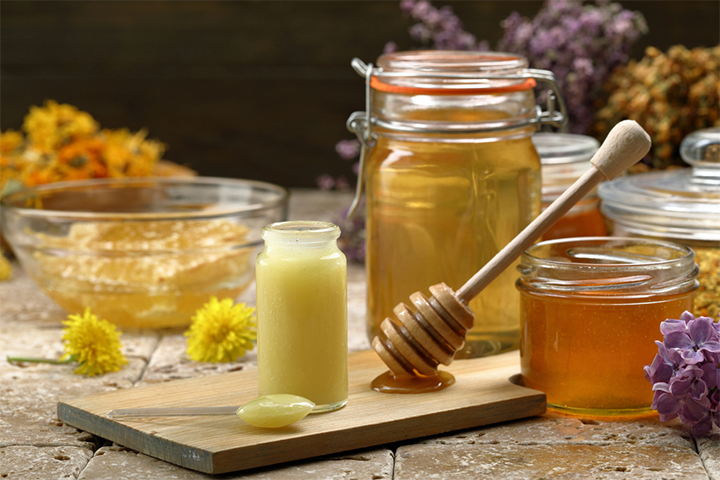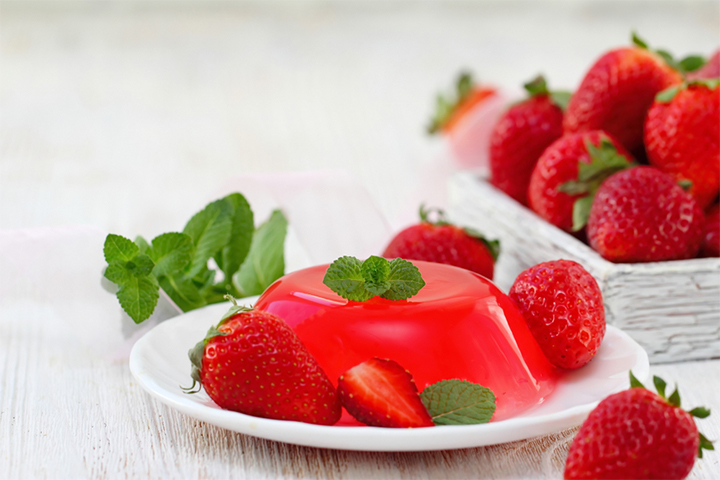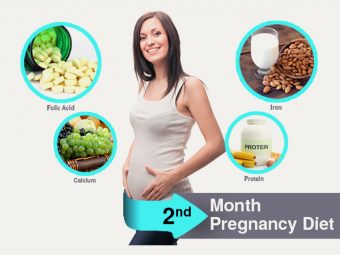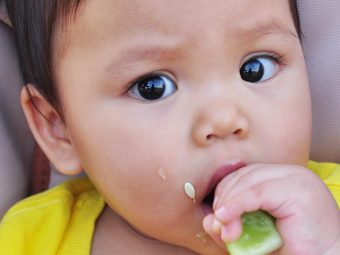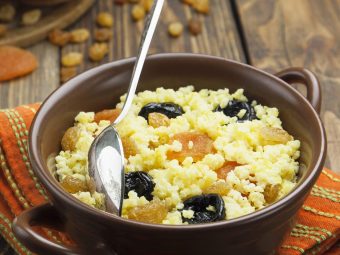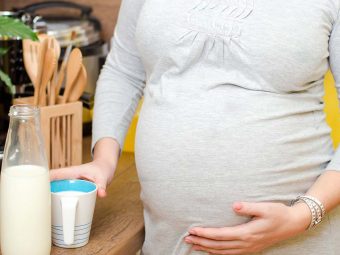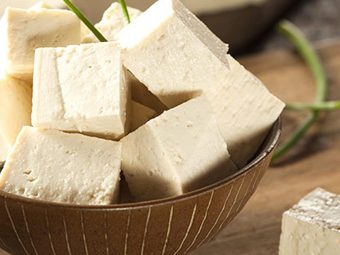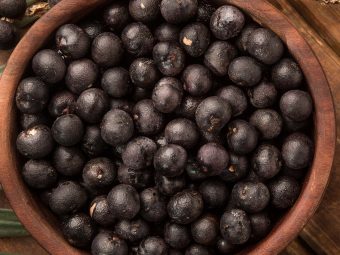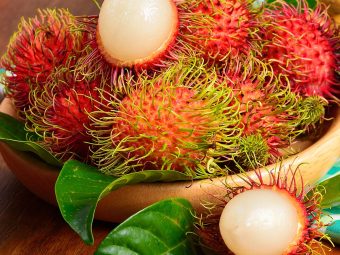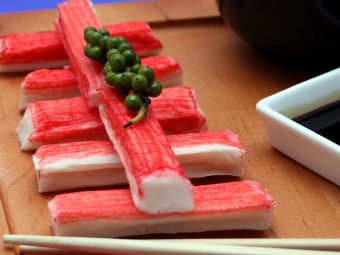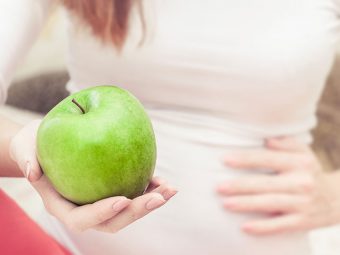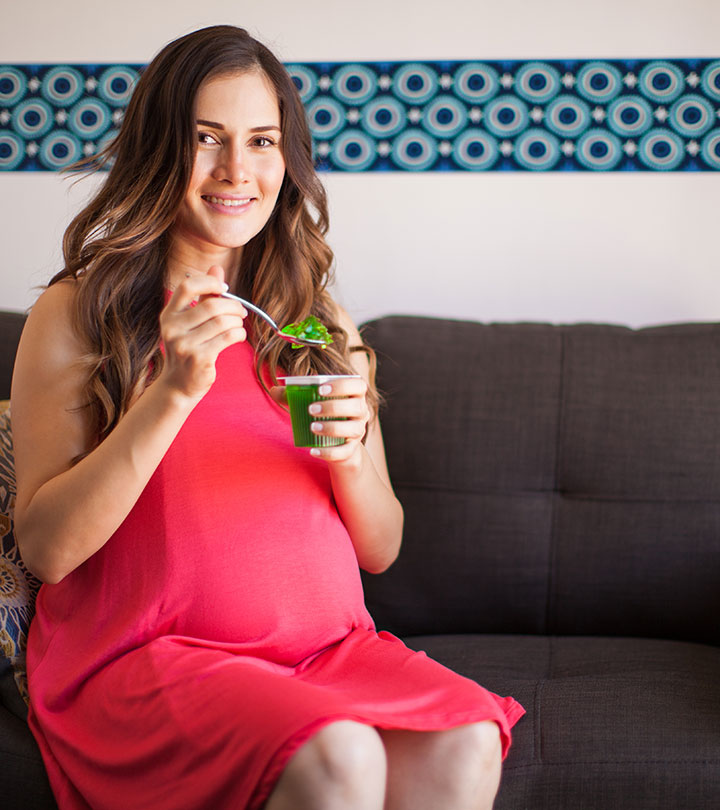
Image: ShutterStock
Is it safe to eat jelly during pregnancy? Fruit jelly is one of the desserts loved by people across age groups. The hormonal changes of pregnancy and increased cravings can make one want to indulge in a spoonful of that yummy smooth jelly. Continue reading this post as we tell you about the health benefits, side effects, and safety measures to be followed by expecting mothers when consuming jelly.
What Is Jelly?
Image: Shutterstock
Jelly is a milky secretion prepared by the joint efforts of honey bees from floral nectar and is a useful ingredient for its medicinal properties. Royal jelly used to prepare different fruit-flavored jelly contains a high proportion of water, carbohydrates, protein, natural sugar, fat, vitamins, and amino acids. The jelly composition varies according to climatic conditions and geographic location. Royal jelly serves as a natural ingredient in health tonics to boost the immune system and fight against the aging effects.
Here is a list of the health ailments treated with consumption of jelly:
- Asthma
- Hay fever
- Insomnia
- Liver diseases
- Stomach ulcers
- Kidney diseases
- Premenstrual syndrome (PMS).
- Skin disorders
- High cholesterol.
Is It Safe To Eat Jelly During Pregnancy?
Yes, it is safe to consume jelly during pregnancy in the form of a snack or treat. It offers many health benefits, and you can include the food in your diet. It aids digestion, controls sugar craving filling, and has varieties of jelly you can choose from. However, as with most foods, anything in excess is not good/ Consume jelly in moderation to prevent any adverse effects of fetal and maternal health.
Health Benefits Of Eating Jelly During Pregnancy
Jelly is an ingredient that adds an extra taste to your sandwiches or bread toasts. Here are some of noticeable health benefits of jelly:
1. Improves digestion
Image: Shutterstock
Jelly made from fruits contains a higher proportion of fiber that regulates the digestive functioning during pregnancy, thereby keeping constipation at bay. Fiber is a vital element that promotes regularity in the digestion process and helps control cholesterol levels.
2. Keeps the appetite full
The consumption of jelly fills your stomach easily and helps you feel full for a longer time span. During pregnancy you often experience severe hunger pangs and intake of jelly helps to satisfy your appetite.
3. Contains vitamins
A regular intake of fruit jelly enhances your vitamin intake. Jelly contains a high proportion of Vitamin C and traces of Vitamin B, providing high nutrition and nourishment. These vitamins help to boost your immune system during pregnancy and heel cut wounds effectively. Additionally, it also contains a small amount of Vitamin D, Vitamin E, and Vitamin A. It also maintains the health of your teeth and gums. Folate present in jelly helps prevent birth defects in your gestating infants.
A regular consumption of royal jelly protects you from vitamin and mineral deficiencies. During pregnancy, your body has extra nutritional needs, as your unborn baby derives all the vital nutrients from your body.
4. Supplies vital minerals
Fruit jelly includes several beneficial minerals like potassium, magnesium, iron, zinc, copper, selenium, and calcium. Calcium and magnesium play a pivotal role in improving bone health of your growing fetus. Potassium helps in regulating your blood pressure level, and Iron helps in healthy blood oxygenation.
5. Reduces risk of pregnancy complexities
In pregnant women, the regular consumption of jelly reduces risks of developing neural tube defects, spina bifida, and anencephaly during fetal development.
6. Boosts nervous system health
The intake of jelly helps your unborn child overcome any developmental problems including autism. When you consume jelly during the pregnancy, it aids in the proper development of the brain and nervous system of the fetus.
7. Reduces stress
Image: Shutterstock
Jelly contains a high proportion of essential amino acids that helps in reduction of the excess stress. It also helps to reduce the symptoms of depression in pregnant women.
Therefore, consuming jelly is beneficial for both you and your unborn baby as it helps in sufficing the nutritional needs.
Side Effects Of Eating Jelly During Pregnancy
Though jelly is safe to consume during pregnancy phase, there are few allergic reactions and complications associated with it, which include:
- Chest tightness
- Nausea
- Coughing
Image: Shutterstock
- Itchy throat
- Skin rashes
Did you consume jelly during pregnancy? Did it boost your immune system health? Share your story with other mommies here!
Frequently Asked Questions
1. Is strawberry jelly safe during pregnancy?
Yes. All types of jellies, including strawberry jelly, are safe to consume during pregnancy. Do eat in moderation since many jellies have artificial coloring and added sugar, causing a rise in blood sugar levels and leading to gestational diabetes or significant weight gain.
2. What does craving jelly during pregnancy mean?
Craving specific food items, such as jellies, during pregnancy is often due to the hormonal changes in the body during pregnancy. Many women may associate craving specific food items with the baby’s gender or health, but that is not true (1).
Infographic: Delicious Homemade Jelly-Based Dishes For Pregnant Women
Craving something sweet during pregnancy is quite normal and can be satisfied by the consumption of jellies. While it is best to consult with a doctor regarding your consumption quantity and allergies, homemade jellies can be considered safe. This infographic provides some lip-smacking recipe ideas for homemade jellies.

Illustration: Momjunction Design Team
Key Pointers
- Royal jelly is a milky secretion extracted from floral nectar used in immune-boosting tonics to fight conditions such as insomnia, aging, and cholesterol issues.
- Fruit jellies can be moderately included in the pregnancy diet as they provide necessary nutrients such as vitamins, iron, folate, and calcium.
- Consumption of jelly during pregnancy can satiate the appetite, aid digestion, regulate blood pressure, reduce stress, and prevent neural defects in the fetus.
- However, excessive jelly consumption can cause allergic reactions, throat and skin irritations, chest tightness, and nausea.
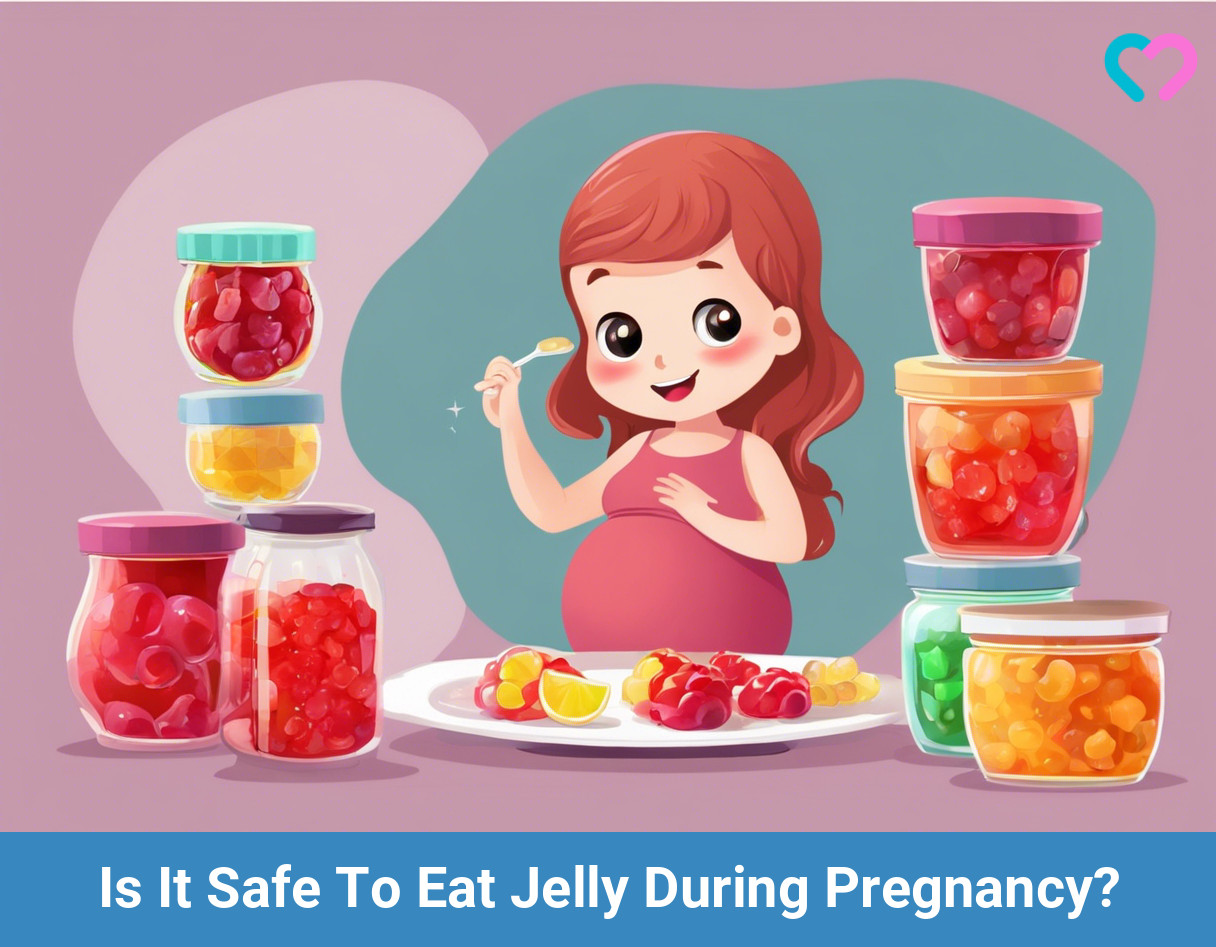
Image: Stable Diffusion/MomJunction Design Team
References
- What Your Pregnancy Food Cravings Really Mean.
https://atriumhealth.org/dailydose/2019/07/10/what-your-pregnancy-food-cravings-really-mean





